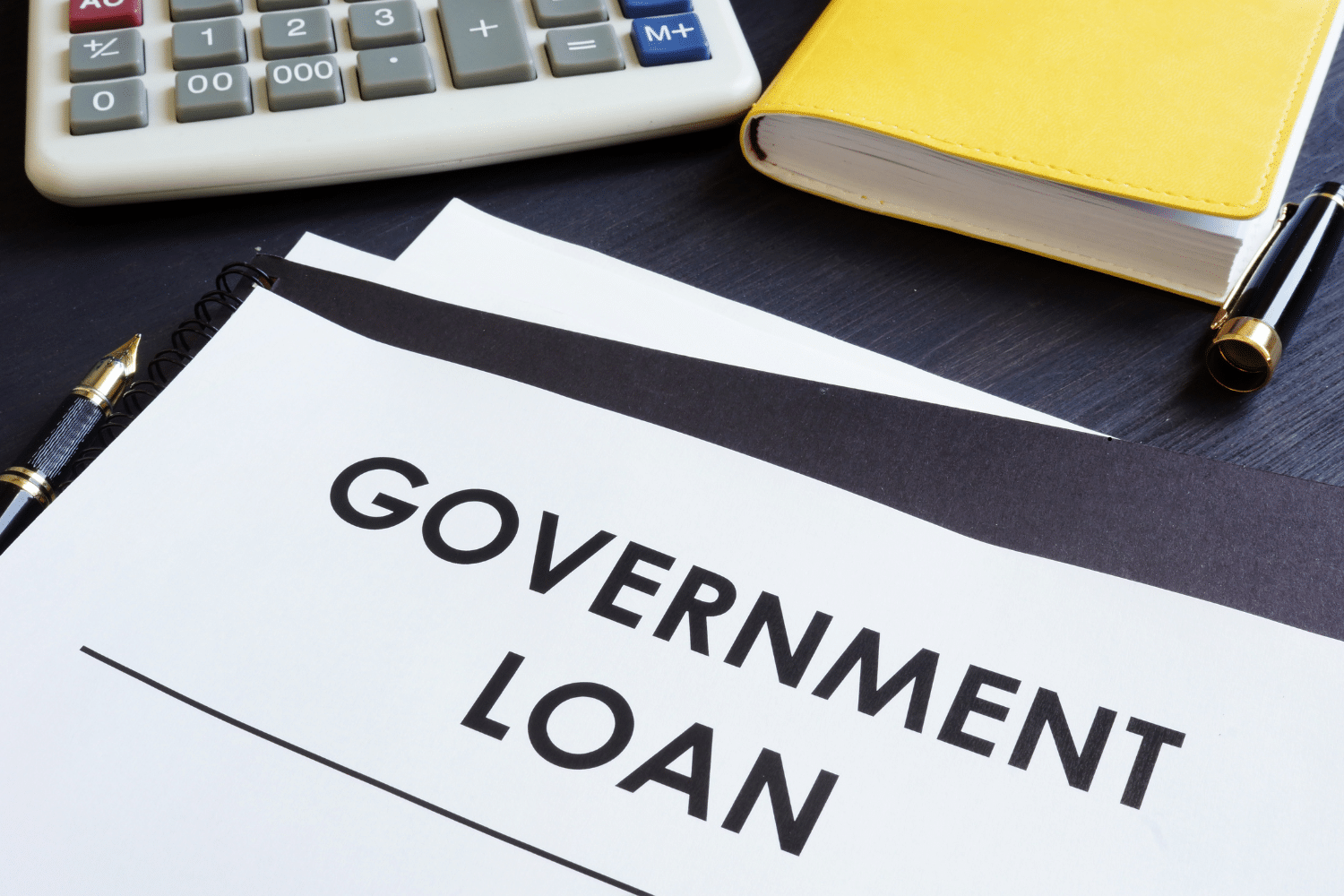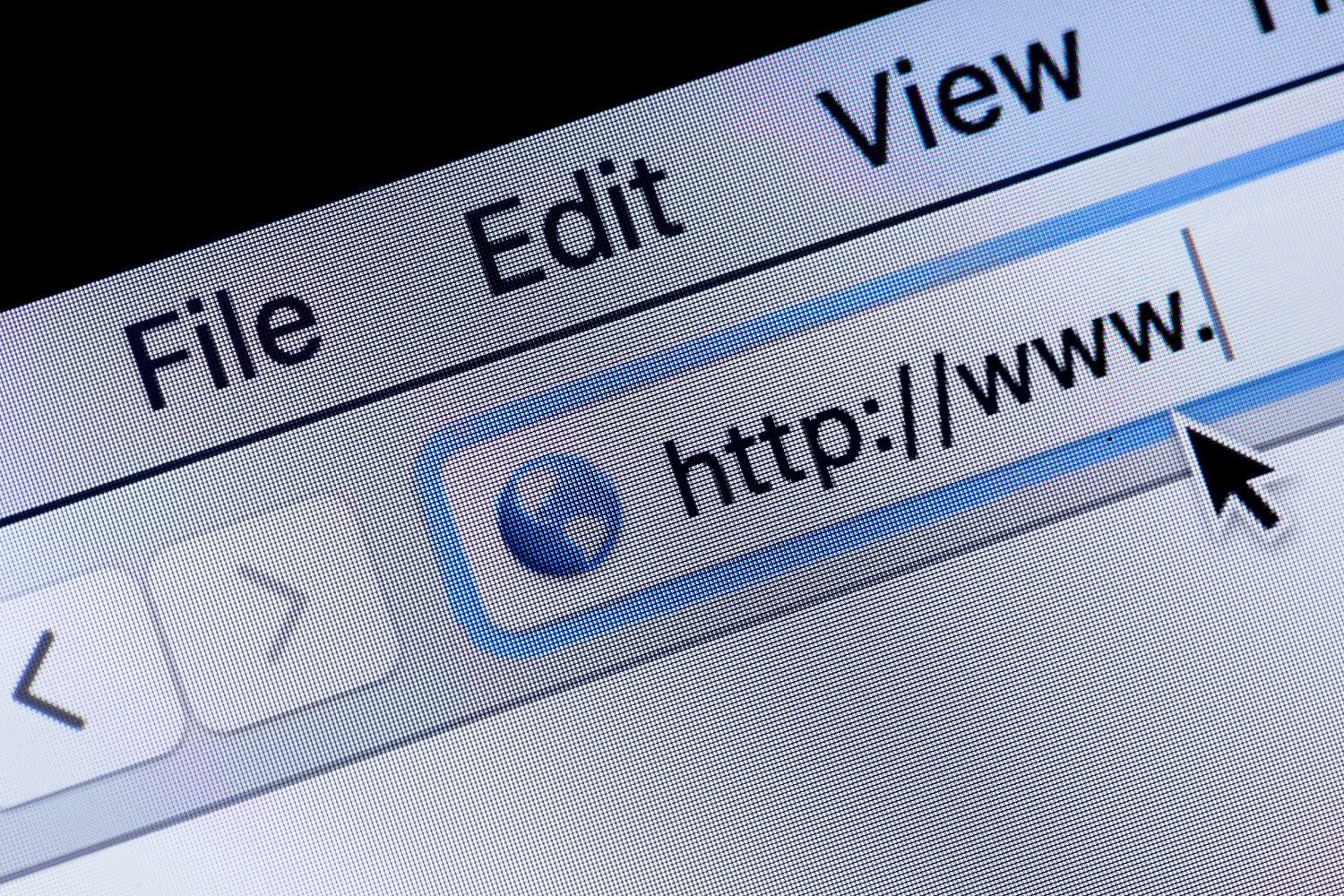Homeownership shouldn’t drain your finances. In a few smart moves, you could reduce home-related expenses significantly. This guide unveils proven methods on how to save money as a homeowner—from mastering energy efficiency to making wise insurance choices—without compromising your lifestyle.
Key Takeaways
- Enhancing home energy efficiency through upgrades to energy-efficient appliances, the installation of smart thermostats, and improved insulation can lead to significant utility bill savings without compromising on comfort.
- Reducing homeowner insurance costs can be achieved by increasing deductibles, bundling insurance policies, and implementing home safety measures that decrease the likelihood of incidents.
- Efficient financial planning for mortgage payments, such as refinancing for lower interest rates, negotiating fees, and exploring down payment assistance programs, can result in long-term savings and manageable monthly payments.
Maximize Energy Efficiency
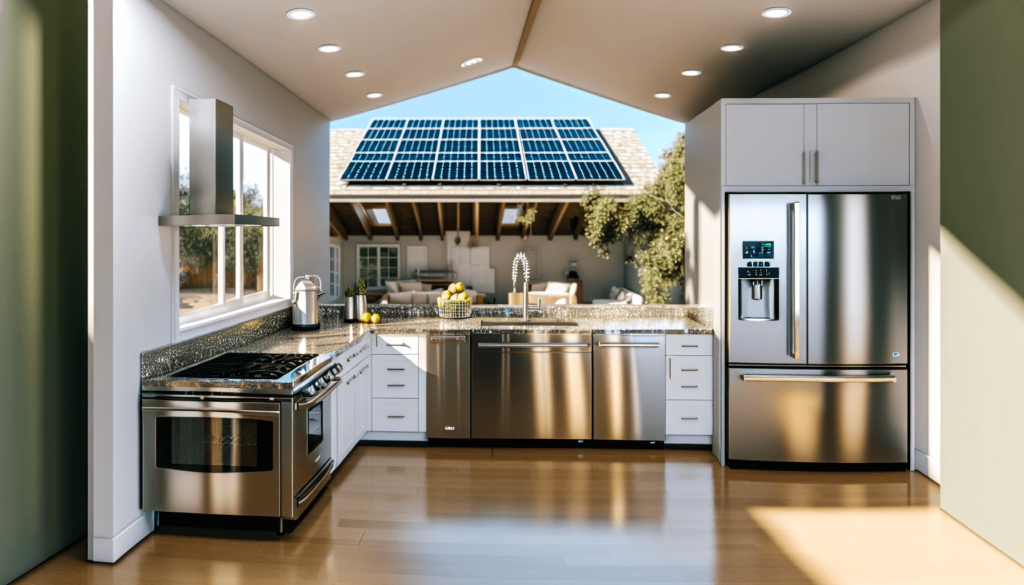
A practical approach to cutting energy costs as a homeowner involves enhancing energy efficiency. This can be achieved through the procurement of energy-efficient appliances, such as a water heater for hot water, the installation of a smart thermostat, and bolstering home insulation – a strategy that could dramatically reduce your utility bills while boosting home comfort.
Upgrade to Energy-Efficient Appliances
Opting for energy-efficient appliances proves to be a wise decision. These appliances not only consume less energy but also relieve the overall utility grid demand, thus aiding in the reduction of greenhouse gas emissions. One example of such an appliance is a cold water washing machine, which uses less energy compared to traditional models that rely on warm water.
Selecting appliances with the EnergyStar label ensures top energy efficiency for products like refrigerators, dishwashers, and stoves.
Install a Smart Thermostat
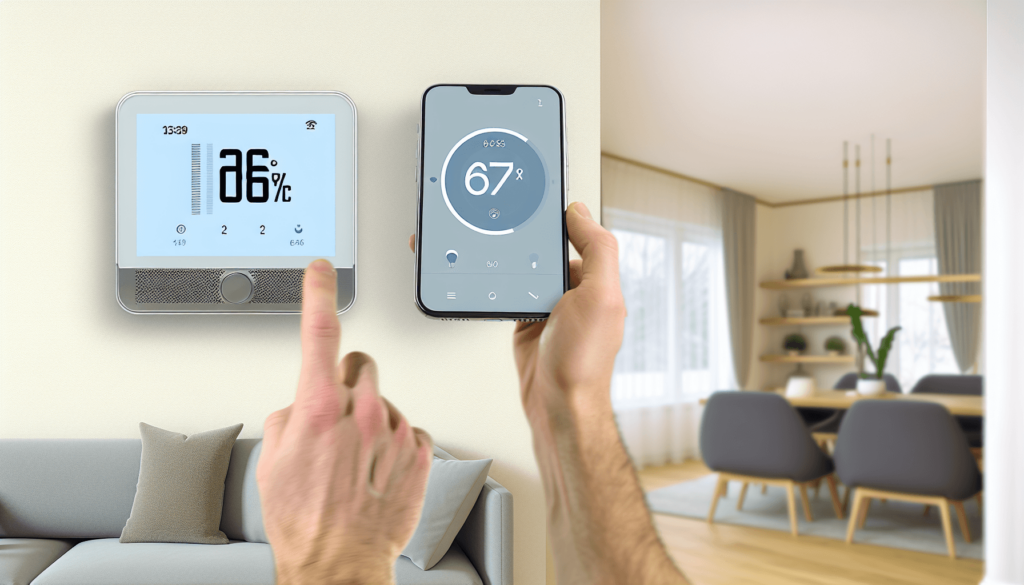
Smart thermostats offer easy programming and remote control capabilities, giving homeowners precise control over their energy usage for heating and air conditioner cooling. Efficient thermostat programming could result in annual savings of up to 10% on heating and cooling costs.
Improve Home Insulation
Proper insulation is key to maintaining energy efficiency. Expanded polystyrene (EPS) insulation offers a high R-value per dollar, performs well against moisture, and retains its R-value over time, contributing to long-term energy efficiency savings.
Save on Home Insurance

Homeowners insurance is a vital safeguard for homeowners, but that doesn’t mean you have to break the bank. Significant reduction in insurance costs can be achieved through methods such as increasing your deductibles, bundling policies, and enhancing home safety measures.
Increase Your Deductible
Choosing a higher deductible on your home insurance can have several benefits:
- It can reduce your annual premium
- It could result in fewer claims, leading to lower premiums for insurance companies
- Homeowners take on more financial responsibility
Homeowners who choose to raise their deductible from $500 to $2,500 can gain an average saving of $512 on their insurance premium, which is more than just a few dollars.
Bundle Policies
Bundling home insurance with other policies like auto insurance can lead to discounts on premiums, with some insurers offering multi-policy discounts from 5% to 25% off.
Improve Home Safety
Installing the following can significantly lower home insurance premiums by mitigating the risk of incidents:
- Security systems
- Smoke detectors
- Deadbolt locks
- Advanced home security systems that alert police, fire, or monitoring stations.
Optimize Mortgage Payments
Navigating the landscape of mortgage payments can seem complicated, but with proper financial planning, managing your mortgage payment doesn’t have to be. Long-term savings and reduced monthly payments can be achieved by refinancing to lower interest rates, eliminating mortgage insurance premiums, and considering the option of mortgage recasting.
Refinance Your Mortgage
A prevalent strategy among homeowners to cut down their mortgage payments, which could save thousands over the loan’s lifespan, is refinancing to a lower interest rate.
A Streamline Refinance can simplify the process of reducing mortgage rates and monthly payments, avoiding extensive paperwork and appraisals.
Negotiate Fees
When it comes to refinancing, every dollar counts. Loan origination fees may be reduced by inquiring if lenders are willing to waive specific charges, and real estate commissions and fees associated with rate locks or purchasing points can often be negotiated.
Down Payment Assistance Programs
Down payment assistance programs can include:
- Cash grants
- Low-interest mortgage loans
- Closing cost credits
- Tax incentives
- Discounted mortgage rates
- Forgivable loans
These programs provide significant aid in purchasing a home.
Budget-Friendly Home Renovations
Home renovations don’t always have to come with a hefty price tag. Bank-friendly home refreshment can be achieved by concentrating on high-impact upgrades, undertaking DIY projects, and conducting thorough research before choosing contractors.
Prioritize High-Value Projects
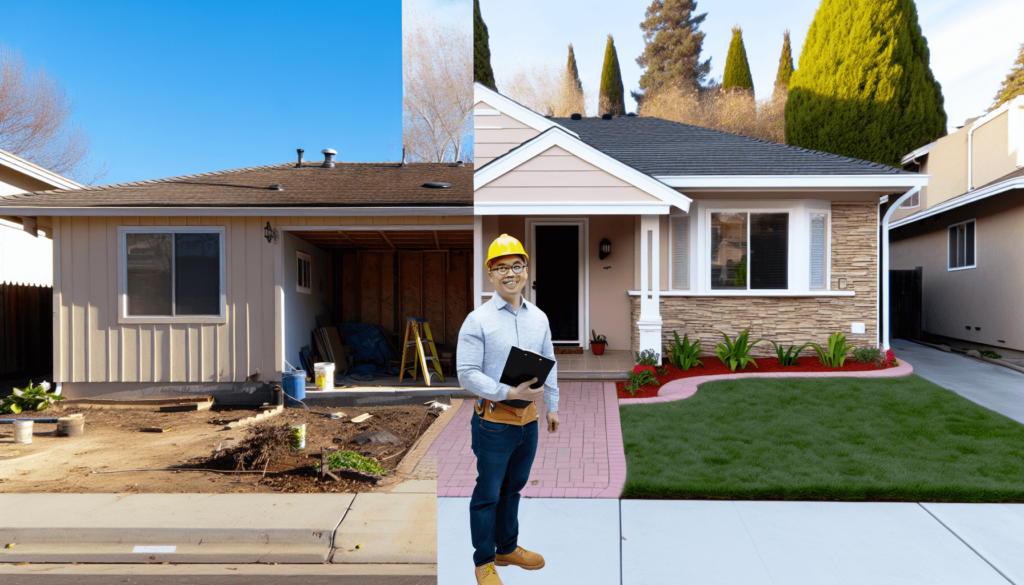
When renovating your home, it’s important to prioritize high-value projects that offer significant returns. For instance, updating the garage and entry doors can significantly improve curb appeal, with a new garage door recouping about 102.7% of costs and a steel entry door yielding nearly 101% at resale.
DIY Where Possible
DIY projects can save significant amounts and add a personal touch to your home. Learning basic DIY skills such as changing light bulbs, replacing air filters, and fixing leaky faucets empowers homeowners to handle minor repairs and save on professional service costs.
Shop Around for Contractors
When you need professional help for home renovations, don’t settle for the first quote you get. Comparing quotes from different contractors is crucial for specialized renovations such as HVAC conversions, window replacements, and siding installations to ensure you find the best value.
Maintain and Prevent
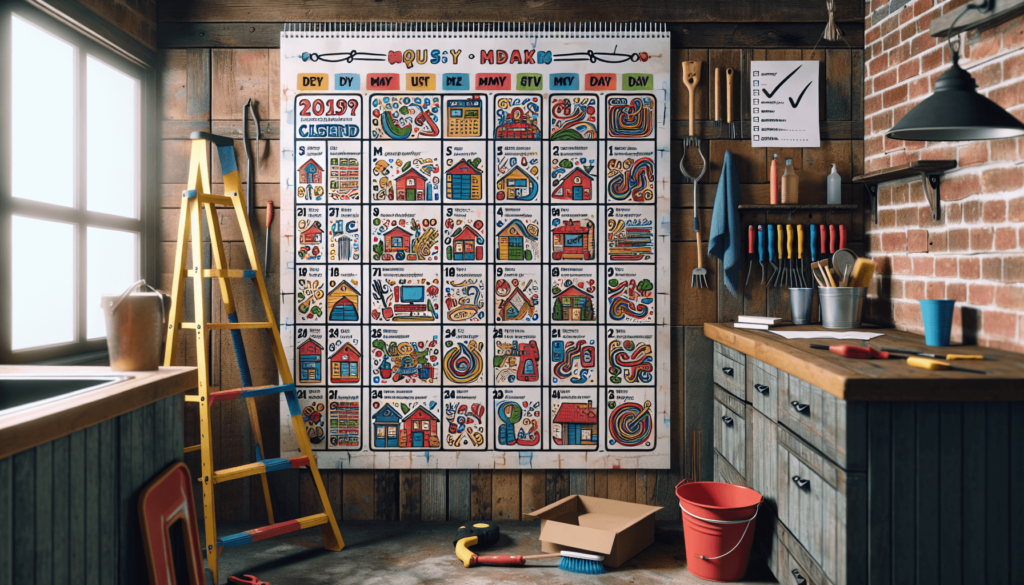
Preventive maintenance is key to maintaining a well-functioning home and avoiding costly repairs down the line. Maintaining your home in peak condition is achievable through the establishment of a maintenance calendar, conducting regular inspections, and taking early action to address issues in their normal setting.
Create a Maintenance Calendar
Creating a home maintenance calendar involves scheduling seasonal updates, repairs, cleaning, and monthly tasks to keep your home in optimal condition. This can include tasks like:
- Cleaning the furnace filter
- Checking the water softener
- Inspecting drains
- Testing alarms and detectors
- Inspecting electrical cords
Perform Regular Inspections
Regular home inspections are critical for identifying potential problems before they become major issues, offering visibility into the condition of a home’s structure and systems. A thorough home inspection includes checking the condition of:
- the foundation
- exterior walls
- roof
- gutters
- chimneys
- basements
- attics
- bathrooms
- kitchens
- interior rooms
- electrical systems
- heating and cooling systems
- plumbing
Address Issues Early
Implementing preventive maintenance routines can extend the lifespan of home components and prevent small problems from turning into larger, expensive repairs. Also, it makes sense to pay for minor damages yourself to prevent premium increases from filing insurance claims.
Utilize Tax Benefits
Multiple tax benefits are available for homeowners to capitalize on for monetary savings. Between taking a standard deduction or itemizing deductions, claiming the mortgage interest deduction, and property tax credits, you have various opportunities to reduce your tax burden.
Rent Out Unused Space
Renting out unused space in your home presents a viable option for generating additional income. This can not only help cover your mortgage payments but also contribute to maintenance or renovation costs.
Repurpose and Reuse
Repurposing and reusing items around your home can help save money and reduce waste, aligning with eco-friendly lifestyle choices. By incorporating these practices, you’re not only saving money but also significantly contributing to cost savings. Discovering ways to save money, such as creatively using glass jars, revitalizing old furniture, and transforming old clothing into rags, can make a difference in your financial and environmental impact.
DIY Cleaning Solutions
The creation of homemade own household cleaners presents a cost-effective and eco-friendly alternative, enabling simultaneous monetary savings and reduction of environmental impact. A homemade vinegar cleaning solution can be made with 1/2 cup distilled white vinegar, 1/2 cup water, and essential oils, effective against molds, grease, and bacteria. Additionally, incorporating baking soda into the solution can enhance its cleaning properties.
Monitor Your Credit Score
Regular monitoring of your credit score can yield financial benefits for homeowners. A good credit score can help secure a lower interest rate and save money over the life of the loan.
Summary On How To Save Money As A Homeowner
Homeownership comes with its fair share of costs, but with strategic planning and smart decisions, you can significantly cut costs without compromising on comfort. From maximizing energy efficiency to monitoring your credit score, the tips shared on how to save money as a homeowner can help you save money and make your journey as a homeowner more enjoyable.
Frequently Asked Questions
A homeowner should aim to have at least 25% of the sale price of a house in savings to cover the down payment, closing costs, and moving expenses. It is also recommended to have three to six months’ worth of expenses in a high-yield savings account for financial emergencies.
The easiest ways to save money for a house are to downsize expenses, pay off debt, increase income, and consider income-generating side gigs or renting out a room. Building a budget is also crucial to track your progress and stay on course.
Yes, you can save money at home by starting budgeting to monitor your income and expenses. Then, consider implementing energy-saving practices such as turning off lights and using smart power strips. These steps can help you cut back on expenses and increase your savings.
You can cut down your bills by making small changes like downloading a personal finance app, meal planning and cooking at home, using shopping lists, canceling cable TV, reducing electricity usage, and investing in smart home tech. These actions will help you start reducing your monthly expenses immediately and can make a difference in your overall budget.
Using energy-efficient appliances reduces overall utility grid demand and lowers greenhouse gas emissions, leading to cost savings on utility bills. This can help you save money in the long run.





